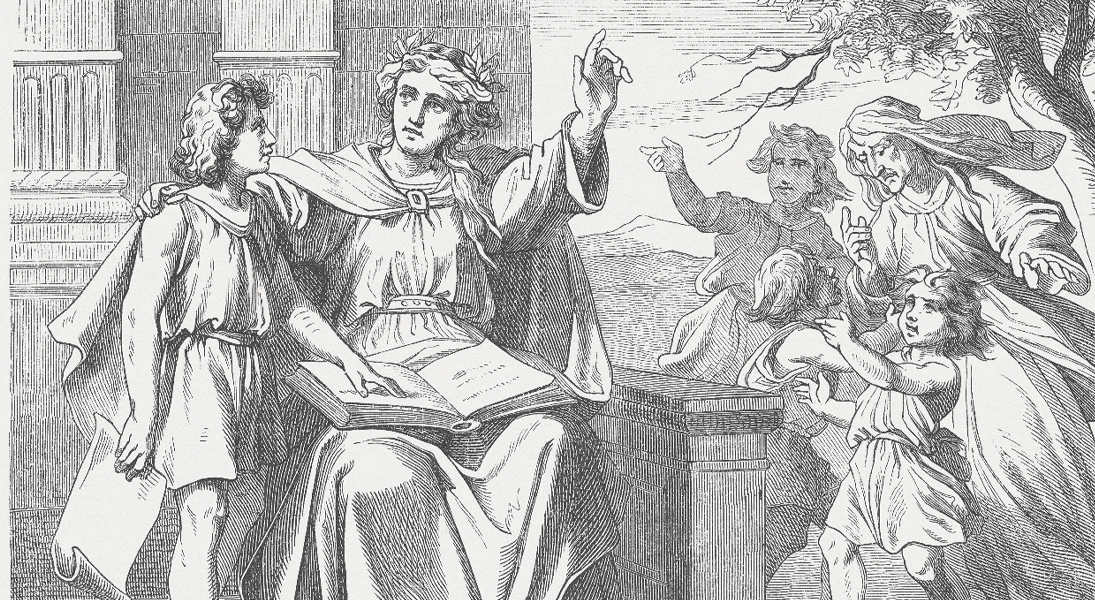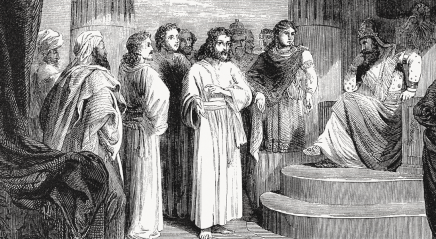Series editor’s note: Throughout 2023, “Deeper understandings” will feature biblical scholars reflecting on one of the books of the Old Testament. Kathryn Schifferdecker will continue this theme in the next issue. —Kathryn A. Kleinhans, dean of Trinity Lutheran Seminary at Capital University, Columbus, Ohio, on behalf of the ELCA’s seminaries
The book of Proverbs asks us to bring our whole lives with us when we read it. This is true for the whole of Scripture but especially for Proverbs.
As part of the biblical books known as wisdom literature, Proverbs centers human experience as a way of discerning God’s work in the world and our participation in it. Proverbs rarely shows up in the lectionary and isn’t known as a favorite in Lutheran circles, but it teaches careful reading and interpreting.
Proverbs’ emphasis on human experience can be disconcerting for someone who expects a divine voice calling from the top of Mount Sinai or a prophet speaking in the name of the LORD. (In most English Bibles, “Lord” appears in capital letters throughout the Old Testament in place of a proper name for God, which is typically unspoken.) Much of Proverbs (10–31:9) is a collection of short aphorisms about, well, almost anything: wealth, wisdom, righteousness, being a good neighbor, being and selecting a good spouse, raising children. It’s a compendium of wisdom about how to live life well, beginning with fear of the LORD.
Proverbs encourages us to observe the world so that we might better understand God and the world God has made.
Proverbs encourages us to observe the world so that we might better understand God and the world God has made. This observation is more than encouraged—it’s required.
Sometimes the proverbs contradict one another. The author presumes that we, as readers, can discern when a certain proverb applies. Take, for instance, the most well-known set of contradictory proverbs, found in 26:4-5:
Do not answer fools according to their folly,
or you will be a fool yourself.
Answer fools according to their folly,
or they will be wise in their own eyes.
So, which is it? I can remember plenty of times when I’ve joined a foolish conversation only to lower my own standards of discussion and prove myself the fool. I’ve also participated in foolish discussions in which wise people helped all participants think and speak more prudently. Jettisoning either piece of advice seems unwise, but neither one fits every situation. Following either proverb to the letter is less important than considering how we participate in discussion for the greater good.
Proverbs isn’t organized by topic—but neither is life
Proverbs 26:4-5 aside, one rarely finds proverbs on the same topic right next to one another. Right speech will be followed by the benefits of finding a good spouse and the peril of false friends.
The part of me that enjoys organizing a spice cabinet has considered indexing Proverbs for easier access. The rest of me appreciates the way Proverbs mirrors life, which rarely comes in matching jars with clear labels, each item kept separate from the others. Life is much more intermixed.
Generally this intermixing benefits us, as different parts of life inform the whole. A discussion with a family member might offer insight into relating to a student in a classroom. A challenging conversation with a friend might influence discussion with a colleague. Proverbs works in a similar way. The key is letting the verses bounce off one another even when they seem unrelated. Again, Proverbs requires active participation.
Proverbs requires active participation.
The first nine chapters of the book are largely composed of lectures from a parent to a child. These lectures are neither abstract nor disembodied. They are family words, life lessons passed down from one generation to another. They might cause us to consider who passes wisdom on to us. Who offers you good advice on faithful living?
In these early chapters, wisdom and foolishness are sometimes personified as women who speak like prophets, who host meals and who offer to lead those listening toward life (or, in the case of foolishness, toward death). Their words and bodies invite us to consider the voices we follow and the tables at which we sit.
In Chapter 8, wisdom is personified as a woman who speaks about being present with God at the dawn of creation, actually inscribing the world alongside God and delighting in humans. Interpreters of the Bible throughout the ages have noticed how, like Jesus, she connects and mediates between God and humans.
The book of Proverbs may sometimes read as a long list of advice, but as it pushes us to weigh its contradictions, acknowledge the interconnectedness of life and seek out faithful, life-giving relationships, we may find ourselves being formed into wiser people.









